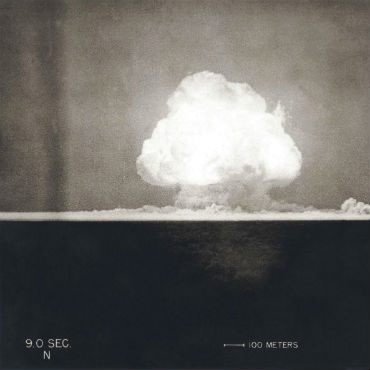Clinton calls for 'Manhattan-like project' on encryption
Clinton has elevated her voice among current and former Obama administration officials warning of the potentially dire consequences of "going dark."

Democratic presidential frontrunner Hillary Clinton wants an effort modeled on the push to develop the atomic bomb during World War II to find a way to give law enforcement officials secure access to encrypted communications.
Her call for a "Manhattan-like project" on encryption is the latest in a series of warnings from current and former Obama administration officials about potential consequences of "going dark," in which default end-to-end encryption on computers and mobile devices presents new challenges for officials looking to trace terrorist and criminal suspects.
"Otherwise, law enforcement is blind -- blind before [a terrorist attack], blind during and, unfortunately, in many instances, blind after," Clinton said during the Dec.19 Democratic debate.
A moderator asked Clinton if she would mandate that Apple -- whose CEO, Tim Cook, has spoken out against weakening encryption -- make encrypted communications accessible to law enforcement. "I would not want to go to that point," the former secretary of state replied.
Some security officials and lawmakers have amplified their calls for giving law enforcement access to encrypted communications in the wake of terrorist attacks in Paris and San Bernardino, Calif. There have been reports that the perpetrators of both attacks communicated at least in part via encryption -- as does anyone with the latest iPhone.
FBI Director James Comey said in October that the administration was, for the time being, dropping its pursuit of a legislative fix to the "going dark" conundrum. But in an address to the nation after the San Bernardino shootings, President Barack Obama said he would "urge high-tech and law enforcement leaders to make it harder for terrorists to use technology to escape from justice."
Security experts have pointed out that law enforcement officials have other clues to work with, such as GPS tracking and metadata that identifies senders and recipients, without reading the encrypted content of suspects' messages. Technologists also warn that any insertion of a backdoor into encrypted communications could make countless Internet users more vulnerable. A recent academic paper in the Journal of Cybersecurity argues that any mandates for law enforcement access to encrypted communications would likely "introduce unanticipated, hard-to-detect security flaws."
Former security officials are by no means unanimous in their position on encryption. Two of three former National Security Agency directors, for example, are on record as saying that encryption should not be weakened in the name of security. One of them, retired Gen. Michael Hayden, told the Washington Post, "I'm not saying that NSA should not try to bust what Apple thinks is unbreakable encryption. All I'm saying is Apple should not be required" to hold keys to the encrypted data.
Cook has not wavered in his position that strong end-to-end encryption is essential to protecting users' privacy and security. "There have been people who suggest that we should have a backdoor," Cook said in an interview with CBS' "60 Minutes" that aired Dec. 20. "But the reality is if you put a backdoor in, that backdoor's for everybody -- for good guys and bad guys."
While acknowledging the risk of backdoors to network security, Clinton appeared to put faith in a technological solution that has yet to materialize. "I don't know enough about the technology...to be able to say what it is, but I have a lot of confidence in our tech experts," Clinton said during the Dec. 19 debate.
By press time, the Clinton campaign had not responded to a question about who advises her on IT issues, including encryption.





